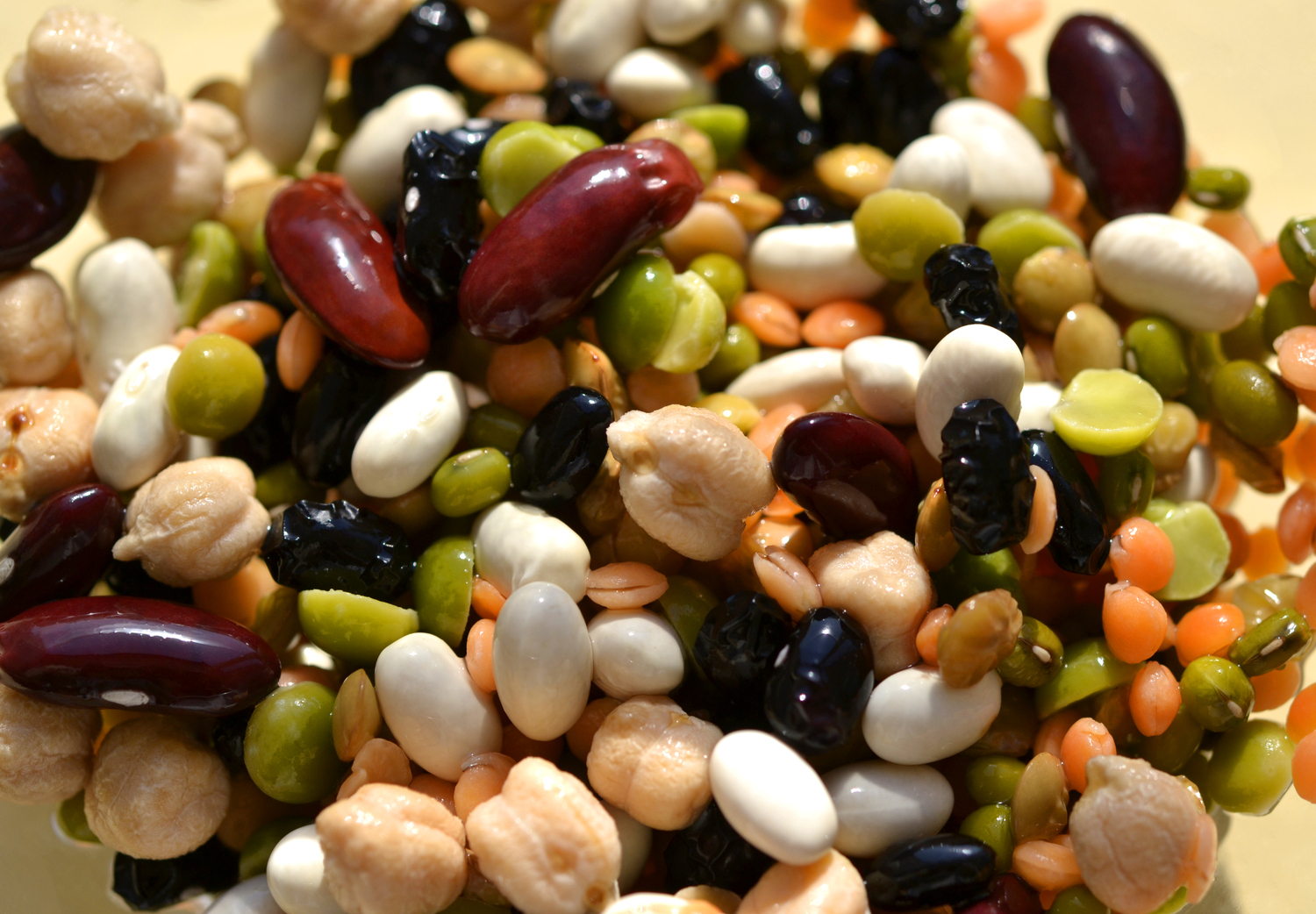Your metabolism is important for maintaining your body’s wellness, whether it be for losing or gaining weight. Nevertheless, several common lifestyle choices can influence your metabolism, either temporarily or permanently. Many people who are trying to lose weight have trouble with their metabolic rate, and having a low metabolic rate makes it difficult to lose weight. An important consideration is that a low metabolic rate is primarily influenced by dietary choices or lifestyle habits!
Metabolism also declines with age, and your lifestyle can accelerate this process. As one’s metabolic rate decreases as one ages, their tendency to gain weight increases. Dietary mistakes or unhealthy lifestyle habits that accelerate this process make it more difficult to lose weight in the long run.
Understanding the nuances of a slow-working metabolism is crucial, and in this comprehensive blog guide, we delve deep into effective strategies and insights to navigate and optimize this often misunderstood aspect of our bodies.
What is a Slow-Working Metabolism?
A slow metabolism means your body burns calories (energy) at a slower rate. This might make it harder to lose or maintain weight. Things like age, genetics, having less muscle, or certain diets can slow down your metabolism. But it's not the only thing affecting weight—eating habits, exercise, and overall health matter too. Making healthy choices like exercising, eating well, and building muscle can help boost your metabolism.

What Are The Signs of a Slow-Working Metabolism?
A slow-working metabolism can manifest through various signs and symptoms. The following signs can answer your questions;
- Difficulty losing weight or sudden weight gain
- Feeling tired and low on energy
- Feeling cold more often
- Digestive problems like constipation or bloating
- Dry skin, brittle nails, or dry hair
- Hormonal imbalances
Remember, these signs could be due to various reasons, not just a slow metabolism. If you're concerned, it's best to consult a healthcare professional for guidance and proper evaluation.
What Causes a Slow-Working Metabolism?
A slow metabolism can be influenced by various factors:
Genetics: Some people inherit a slower metabolism from their parents, affecting their basal metabolic rate—the energy your body needs to function at rest.
Age: Metabolism tends to slow down with age. This decline in metabolic rate can be due to muscle loss, hormonal changes, and decreased physical activity.
Muscle Mass: Muscle tissue burns more calories than fat tissue. Therefore, individuals with less muscle mass might have a slower metabolism.
Diet and Nutrition: Crash dieting, prolonged calorie restriction, or irregular eating patterns can signal the body to conserve energy, slowing down metabolism to preserve resources.
Hormonal Factors: Thyroid imbalances, such as hypothyroidism, can lead to a slower metabolism. Additionally, changes in other hormones, like cortisol (due to stress), can influence metabolism.
Physical Inactivity: Lack of regular exercise and a sedentary lifestyle can contribute to a slower metabolism as the body adapts to lower energy demands.
Sleep: Inadequate sleep can disrupt hormone levels (like ghrelin and leptin) that regulate appetite and metabolism, potentially slowing it down.
Medical Conditions: Some health issues, such as polycystic ovary syndrome (PCOS), can affect metabolism.

How Do You Fix Slow-Working Metabolism?
Slow metabolism can be influenced by various factors such as age, genetics, diet, and activity level. Here are some strategies that can potentially help improve the metabolism:
Regular Exercise: Incorporating both aerobic exercises (like running, cycling) and strength training (weight lifting, resistance exercises) can increase muscle mass and boost metabolism. Muscles burn more calories than fat even when at rest.
Balanced Diet: Eating a well-balanced diet with adequate protein, healthy fats, and complex carbohydrates can support metabolism. Avoid extreme calorie restriction, as it can slow down metabolism further. Small, frequent meals can also help keep metabolism steady.
Stay Hydrated: Water is crucial for metabolic processes. Drinking enough water can support metabolism and prevent dehydration, which might slow it down.
Get Sufficient Sleep: Lack of sleep can negatively impact metabolism. Aim for 7-9 hours of quality sleep per night to support overall health, including metabolic function.
Manage Stress: Chronic stress can impact metabolism. Techniques like meditation, yoga, or other relaxation methods can help manage stress levels.
Consider Thyroid Health: Sometimes, an underactive thyroid gland (hypothyroidism) can contribute to a slow metabolism. Consult a healthcare professional to evaluate thyroid function through blood tests.
How Do I Speed Up My Metabolism?
There are several natural ways to boost your metabolism, which can help you burn more calories and potentially aid in weight management. Here are some strategies:
- Get Moving: Find activities you enjoy, like walking, dancing, or playing a sport! Moving more throughout the day helps boost your metabolism.
- Power Up with Protein: Foods like chicken, fish, beans, or nuts are not only tasty but can also give your metabolism a little extra kick.
- Stay Hydrated: Drinking enough water supports metabolism.
- Eat Regularly: Avoid skipping meals; eating smaller, balanced meals throughout the day can keep metabolism steady.
- Spice Things Up: Adding spices like chili peppers to your meals support metabolism.
- Get Enough Sleep: Getting enough rest (7-9 hours of sleep) supports metabolism.
- Reduce Stress: Manage stress through activities like meditation or hobbies, as stress can affect metabolism.
- Try Green Tea: Sipping on some green tea could be a cool way to give your metabolism a little extra boost temporarily.
Remember, these simple tips can help, but factors like genetics and age also influence metabolism. Just remember, your unique body might respond differently, so find what works best for you. Making these lifestyle changes consistently over time can support a healthier metabolism.

What Foods Can Boost Metabolism?
Several foods are believed to have metabolism-boosting properties. While no single food can drastically increase your metabolism on its own, incorporating certain items into your diet may help enhance metabolism to some extent. Here are some foods that are often associated with boosting metabolism:
- Protein-rich foods: Protein requires more energy to digest compared to fats or carbohydrates. Foods like lean meats, fish, eggs, dairy products, legumes, nuts, and seeds can increase your metabolic rate through a process called the thermic effect of food (TEF).
- Spicy Foods: Chili peppers and spices contain capsaicin, which can temporarily increase metabolism.
- Green Tea: Contains antioxidants and compounds that might help in burning calories and increasing metabolism.
- Coffee: Caffeine in coffee can slightly raise metabolism and enhance fat burning.
- Whole Grains: Foods like oats, brown rice, and quinoa take more energy to digest than refined carbs, potentially boosting metabolism a bit.
- Healthy Fats: Omega-3 rich foods like salmon, chia seeds, and flaxseeds can support a healthy metabolism by reducing inflammation.
- Water: Staying hydrated is essential for metabolism to work efficiently.
While these foods may give a small boost to metabolism, maintaining a balanced diet, staying active, and being healthy overall are more impactful for a healthy metabolism.
What Foods and Eating Habits to Avoid If You Have a Slow-Working Metabolism?
Having a slow metabolism means that your body burns fewer calories to maintain basic functions. While certain foods don't directly speed up metabolism, some choices can still support a healthier metabolic rate or prevent further slowdown. Here are foods to consider avoiding or moderating if you have a slow-working metabolism:
- Sugary Foods and Drinks: Cut down on candies, sodas, pastries, and sugary cereals as they can lead to weight gain.
- Processed Foods: Avoid heavily processed items, like fast food, chips, and processed meats, which often contain unhealthy fats and additives.
- Trans Fats: Steer clear of fried foods, certain margarine, and commercial baked goods that contain trans fats, as they can negatively impact your metabolism.
- Refined Grains: Limit refined grains as they can cause spikes in blood sugar levels, potentially affecting metabolism.
- Alcohol: Excessive alcohol consumption affects metabolism, so try to moderate your intake.
- Large Portions: Overeating, more than you need, can contribute to weight gain and affect metabolism negatively.
- High-Calorie, Low-Nutrient Foods: Limit fast food, snacks, and sweets as they can lead to weight gain without providing essential nutrients.

Which Vitamins Boost Metabolism?
Several vitamins play crucial roles in supporting a healthy metabolism. While none of them directly "boost" metabolism in the sense of increasing it beyond its normal functioning, they contribute to the metabolic processes that convert food into energy. Here are some vitamins that are important for metabolism:
Vitamins B: They help convert food into energy. Find them in foods like whole grains, meat, fish, eggs, dairy, and leafy greens.
Vitamin D: Supports metabolism indirectly. Sunlight, fatty fish, fortified foods, and supplements are sources.
Vitamin C: While not directly linked to metabolism, it helps in using fat for energy. Citrus fruits, berries, and veggies like bell peppers are good sources.
Vitamin E: Acts as an antioxidant. Nuts, seeds, and vegetable oils are rich in vitamin E.
Remember, a balanced diet with these vitamins from various foods, along with regular exercise, is key for a healthy metabolism.
How Long Does it Take to Fix Slow-Working Metabolism?
Improving a slow-working metabolism isn't a swift process and varies widely among individuals, influenced by factors like age, genetics, lifestyle, and health conditions.
Generally, fostering lifestyle modifications such as embracing a balanced diet, integrating regular exercise encompassing both aerobic and strength training, prioritizing quality sleep, stress reduction techniques, and maintaining proper hydration are pivotal for enhancing metabolism.
This journey is gradual, taking weeks to months before observable shifts manifest. Consistent commitment to sustainable habits is paramount for optimizing metabolism and overall well-being. Seeking guidance from healthcare professionals or registered dietitians can offer personalized strategies tailored to individual needs.

What is a Good Metabolism Booster?
The best metabolism boosters in terms of food are found to have a lot of power-up protein. When you consume high-protein meals and supplements, and put in the work by being very active in your daily activities, your metabolism is sure to get a boost.
At What Age Does Metabolism Slow Down?
As you hit 30, you may begin to notice weight loss becoming more challenging, attributed to decreased physical activity leading to a 3% to 5% loss in muscle mass per decade. By age 40, the natural decline in muscle mass, known as sarcopenia, progresses, even for active individuals, with fat replacing muscle tissue, further impeding metabolism depending on the extent of muscle loss.
Hormonal shifts and genetic variations contribute to the variability in the pace of metabolic slowdown, making it challenging to precisely predict the rate at which one's metabolism will decrease with age. These factors collectively underscore the importance of maintaining an active lifestyle, balanced diet, and strength-training exercises to mitigate the impact of age-related metabolic changes.
Common Mistakes That Slow Down Metabolism
The decrease in your metabolism rate not only manifests as difficulty gaining or losing weight. It also reduces your quality of life associated with constant fatigue, dry skin, hair loss, headaches, and difficulty concentrating, making it important to keep your metabolism healthy for reasons beyond weight loss or gain.
What are these common mistakes, you might ask? Here are 6 common mistakes that affect your metabolism and how to overcome them:
1. Not Eating Enough
If you’re following a very restricted diet to lose weight, fasting for long hours and eating very little food results in having too few calories and nutrients. While this may seem like it would help in weight loss, it actually causes a huge drop in metabolism.
Everyone has a minimum calorie intake for their metabolism to work properly called a basal metabolic rate. If you take fewer calories than required for your basal metabolic rate, your body thinks that the food supply has been restricted and will therefore signal itself to burn fewer calories. This not only makes it impossible to lose weight in the long run but also results in symptoms like fatigue, dry skin, hair loss, and headaches. In such a situation, you cannot easily improve your metabolic rate even if you go back to your old routine and start eating enough calories.
Another harmful effect of lowering your metabolic rate from eating too few calories is that when you do return to your old routine after losing weight, you start to gain more weight than you usually would have because your metabolism has changed so that it burns fewer calories than it would have in the past.
Therefore, if you are going to diet to lose weight, you should not restrict your calorie intake too much for too long. An adequate and balanced diet is always the best! To lose weight, consuming just the right amount of calories between your basal metabolic rate and your total energy expenditure is key.

2. Low Protein Diet
Often when you aren’t mindful of your eating habits, you tend to consume carbohydrates heavily. However, our body needs adequate protein to maintain muscle mass.
Adequate protein intake prevents the metabolic rate from falling, as it helps you feel full and preserves muscle mass. So make sure you get enough protein every day! To find out roughly how much protein you should have a day, you can go by the World Health
Organization's recommendation: for healthy individuals, the daily protein requirement is 0.8 – 1 gram per kg. For example, if you are 70 kg, the amount of protein you need daily is between 56-70 g.
3. Maintaining A Sedentary Lifestyle
A sedentary lifestyle means not engaging in or irregularly engaging in physical activity. Being sedentary causes fewer calories to be burned and slows your metabolism. As this is one factor that makes it difficult to lose weight, it’s important to consider both your diet and your level of physical activity to maintain a healthy metabolism.
Any kind of physical activity is very important for metabolism. Even simple activities such as walking, climbing stairs, or standing up occasionally if you are an office worker can help keep your metabolism going.
4. Not Sleeping Well
A good night's sleep helps maintain your metabolic rate. Having poor sleep quality and sleeping less than you need reduces the amount of energy spent while at rest.
Insufficient sleep lowers your metabolic rate and, in turn, increases the likelihood of weight gain. The time that you sleep is also important. Sleeping during the day instead of at night can negatively affect your circadian rhythm and result in poor sleep quality, thus considerably reducing your metabolic rate.
Having a night of good sleep is a way to speed up or protect your metabolism. Make sure to sleep 7-9 hours every night, which is the requirement for healthy sleep for most adults.
5. Not Drinking Enough Water
About 70% of our body is water, which is proof of the importance of drinking water for your metabolism. Since water is necessary for the cells to function properly, your metabolism slows down if you do not drink enough water throughout the day.
Adding enough fluids to your diet can increase your metabolic rate, but frequently having drinks high in sugar can slow down your metabolism. For this reason, you should drink at least 8-10 glasses of water every day and pay attention to the other kinds of drinks you have. For example, avoid drinking sugary drinks regularly.

6. Being Stressed
When you are stressed, your body produces a hormone called cortisol. This hormone turns on your fight or flight instincts, which affect your body’s functions and causes your metabolism to slow down.
If you are constantly under high stress, your metabolism will slow down, and your tendency to store fat will also increase. Therefore, try to take time for yourself with activities that help lower your stress levels, such as meditation or yoga.














